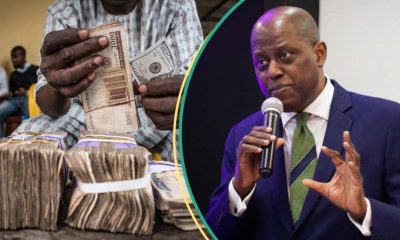A member of the Federal Government’s Economic Advisory Council, Bismarck Rewane has warned that the income and purchasing power of Nigerians would be hit in 2020 due to the policies of President Muhammadu Buhari.
Rewane, who is the Chief Executive Officer of Financial Derivatives Company Limited, said the proposed increase of Value Added Tax (VAT), electricity tariff and return of tollgates would negatively impact on the income of Nigerians.
The financial expert explained that the economic situation in 2020 would be difficult to ascertain or estimate at the global economy and domestic markets.
He said, “For Nigeria, consumers will groan about the hike in VAT, the restoration of tollgates and cost-reflective electricity tariffs.
“The good news is that the payment of the new minimum wage and the arrears would offer some succour to workers. Investors would also keep a close watch on the stock market and the impact of government policies on their portfolio strategy.”
It is important to note that the Senate is also seeking a legislative action to impose a 9% tax on Communication Services. The communication service tax shall be levied on Electronic Communication Services like Voice Calls; SMS; MMS; Data usage both from Telecommunication Services Providers and Internet Service as well as Pay per View TV Stations.
Rewane said the CBN would maintain its stance on the Monetary Policy Rate due to the rising inflation and depleting external reserves. But he said the CBN could cut interest rate if “inflation enters a sustained downward trend and falls below the targeted upper limit of 9%.”
He further stated that at the expense of external reserves, the CBN would continue in its aggressive intervention at the foreign exchange market.
Rewane also stated that CBN is likely to impose more forex restrictions rather than devalue the naira in the face of growing external imbalances, adding that unorthodox measures will be applied by CBN to encourage lending as economic growth becomes a stronger consideration.
Meanwhile, FDC analysts said the absence of forex interventions by the CBN was behind the continuous depreciation of the naira which might result into higher prices.
“Further depreciation of the naira is likely to occur in light of depleting external reserves, which could limit the CBN’s ability to intervene in the forex market,” he said.

 Business1 week ago
Business1 week ago
 Latest4 days ago
Latest4 days ago
 Latest5 days ago
Latest5 days ago
 Business5 days ago
Business5 days ago
 Politics1 week ago
Politics1 week ago
 News1 week ago
News1 week ago
 News4 days ago
News4 days ago
 Crime5 days ago
Crime5 days ago

